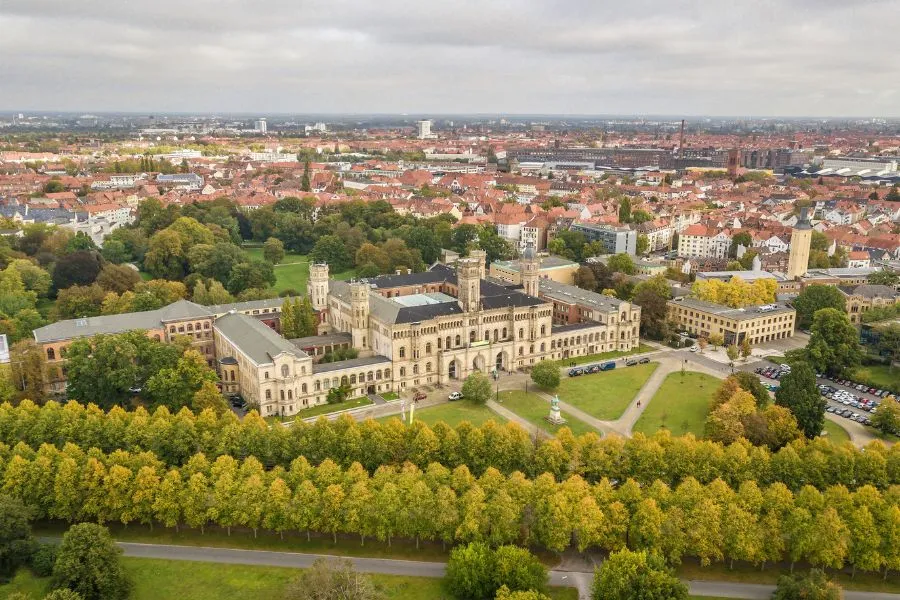Germany has long stood as one of the most research-driven countries in the world, offering generous support to scholars who want to pursue advanced academic work. Among its most respected programs is the Hans Böckler Foundation Scholarship (Hans-Böckler-Stiftung), which continues its legacy in 2026 by welcoming ambitious PhD candidates from around the globe.
Key Takeaways
What Are the Böckler Foundation Scholarships 2026?
The Böckler Foundation, backed by the German Trade Union Confederation (DGB), promotes not only academic excellence but also social responsibility. Its scholarships are unique because they combine financial support with a strong focus on civic and political engagement. In other words, the Foundation doesn’t just fund your research; it looks for individuals who want to make an impact in their communities, advocate for fairness, and strengthen democratic values through their work.
Ready to Study in Germany with Full Funding? Begin Here.
We connect you with trusted immigration experts who simplify the entire process — from paperwork to approval.
The 2026 scholarship cycle is designed for international PhD candidates who want to conduct part of their doctoral research in Germany, collaborate with local supervisors, and contribute to global academic exchange. The goal is not merely to fund studies, but to build bridges between countries, disciplines, and social realities while supporting scholars who care about the broader implications of their work.
Types of Scholarships Offered Under the 2026 Program
The 2026 program features two primary international PhD scholarships, both offering full financial coverage but catering to slightly different research areas and timeframes.
The first is the Dieter Schumacher International PhD Scholarship, intended for doctoral students in economics. It particularly encourages research in topics such as fiscal and monetary policy, labor markets, income distribution, and financial markets. This scholarship is ideal for young researchers under the age of 30 who wish to explore policy-related questions or contribute to fairer economic systems. The funding period ranges from 12 to 24 months, allowing scholars to carry out substantial research stays in Germany.
Also Read: Are You Eligible for a Fully Funded Saudi Arabia’s Scholarship in 2025?
The second is the Ute and György Széll International PhD Scholarship, which focuses on the social sciences and humanities. This program supports shorter research stays of around six months, which can also include archive visits or foundation placements relevant to the candidate’s field.
It is open to applicants of all ages, making it an inclusive opportunity for both early-career and mid-career researchers. The Széll Scholarship particularly appeals to candidates exploring social justice, culture, or human behavior areas deeply connected to the Foundation’s values.
Together, these two scholarships reflect the Foundation’s dual commitment: to strengthen global academic collaboration and to promote research that engages with real social and economic issues.
Funding Coverage and Financial Benefits
Financially, the Böckler Foundation scholarships are among the most generous in Germany’s international research landscape. Both programs are fully funded, ensuring that scholars can focus entirely on their work without worrying about financial strain.
Also Read: Can You Get a Belgium Work Permit in Just 15 Days Now?
For recipients of the Dieter Schumacher International PhD Scholarship, the Foundation provides a monthly stipend of €1,550, which comfortably covers living expenses in most German cities. In addition, scholars receive an annual travel allowance of around €1,400 to support travel to and from Germany, conferences, or relevant research trips. The funding duration of 12 to 24 months makes it particularly attractive for those planning a substantial research phase within a German university or institute.
The Ute and György Széll International PhD Scholarship provides a monthly stipend of €1,450, along with a travel allowance of approximately €1,300. While the research stay is shorter (typically six months), the coverage remains comprehensive, especially for candidates conducting archival research or qualitative fieldwork in social science and humanities contexts.
Beyond monetary benefits, both scholarships include access to the Böckler academic network, workshops, and potential mentoring support. These intangible resources often prove as valuable as the funding itself, offering exposure to German research practices, union-linked academic discussions, and collaborative opportunities across Europe.
Who Is Eligible to Apply in 2026?
Eligibility for the Böckler Foundation scholarships is as much about academic quality as it is about personal values. The Foundation seeks candidates who excel in their studies but also demonstrate a clear commitment to social or political engagement, whether through community work, advocacy, or research that addresses societal challenges.

For the Dieter Schumacher Scholarship, applicants should:
- Be PhD candidates in economics, focusing on areas such as economic policy, finance, or labor studies.
- Be under 30 years old at the time of application.
- Have a solid academic record and a well-defined research project that can be effectively supervised in Germany.
For the Ute and György Széll Scholarship, the eligibility is broader:
- Candidates should be doctoral researchers in the social sciences or humanities.
- There is no age limit, encouraging applications from diverse academic backgrounds and career stages.
- Applicants should show an active interest in social or political issues, reflecting the Foundation’s mission of promoting equality, solidarity, and democratic participation.
Also Read: Can New Zealand’s New Occupation List Help You Secure a Job and Visa?
In both cases, applicants must secure an invitation or supervision commitment from a German university or research institute. Proficiency in English or German is expected, depending on the project’s requirements, and the proposed research should have a clear connection to Germany or involve collaboration with a German academic partner.
How to Apply for the Böckler Foundation Scholarships
The application process for the Böckler Foundation Scholarships is structured but straightforward. Successful candidates usually begin by preparing a research proposal, roughly three pages long, outlining the topic, goals, methodology, and expected outcomes. The Foundation places strong emphasis on the clarity and relevance of this document; it’s your academic calling card.
Also Read: Why Has Germany Decided to End the Visa Remonstration Procedure?
Next, you’ll need to secure a German host supervisor who agrees to support your research stay. This can be a professor or academic advisor at a university or research institution in Germany. Having this commitment in place is a prerequisite for your application.
Along with your research proposal, you’ll be asked to submit:
- A comprehensive CV detailing academic background, publications, and any relevant experience.
- Letters of recommendation, typically including one from your current PhD supervisor.
- Degree certificates and transcripts proving your academic qualifications.
- The Böckler Foundation application form, available directly on the Foundation’s website.
All documents should be submitted through the Foundation’s online portal or via the official submission instructions listed for the 2026 cycle. After submission, shortlisted candidates may be contacted for additional information or clarification, though interviews are not always part of the process.
Also Read: Do You Have to Make Your Social Media Public for a U.S. Visa Now?
As always, completeness and clarity matter. Applicants are encouraged to start early, verify their host supervisor’s availability, and make sure all documents are translated and certified if required.
Application Deadlines and Final Advice for Candidates
Timing is crucial when applying for any scholarship, and the Böckler Foundation is no exception. For both the Dieter Schumacher and Ute & György Széll International PhD Scholarships, the main application deadline is 28 February 2026.
If you plan to begin your research during the winter semester, the application window runs from 15 November 2025 to 1 February 2026. This gives ample time for candidates to gather the necessary documents, finalize supervision agreements, and refine their proposals before submission.
Before applying, take the time to align your research goals with the Foundation’s core principles of social justice, participation, and solidarity. The selection committee looks not only at the academic strength of your proposal but also at how your work contributes to broader social understanding.
When choosing a host institution, think strategically. Identify universities or research groups in Germany that are well aligned with your topic and reach out to potential supervisors well in advance. Building a genuine academic connection can make your application more compelling.
Also Read: How Can You Win a €300 Monthly Scholarship at the Europa-Institut?
Finally, remember that the Böckler Foundation is looking for more than just good researchers; it’s looking for thinkers who care about the social impact of their work. If you can combine intellectual rigor with a sense of purpose, your chances of success are strong.
In Summary
The Böckler Foundation Scholarships 2026 offer a unique opportunity to conduct meaningful research in Germany while being part of a community that values academic excellence and social commitment. Whether you’re an economist studying financial equity or a social scientist exploring human rights, these scholarships provide both financial support and intellectual freedom.
By applying early, choosing your host institution wisely, and crafting a proposal that reflects both your scholarly ambitions and civic ideals, you stand to gain not just a scholarship but a transformative research experience in one of Europe’s leading academic environments.





